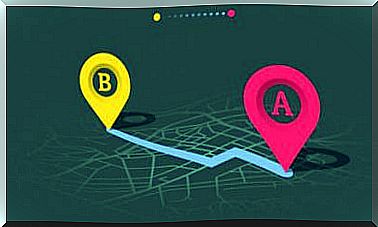When I’m Angry I Can’t Control Myself

Do you have trouble controlling your emotions when you get angry? Do you tend to blurt out the first thing that comes to your mind and then regret it? Do you easily lose your cool? Why is this happening? What is behind this anger that we find so difficult to deal with?
In this article, we’ll explore the possible causes of this loss of control. To a large extent, this is due to poor self-control and low tolerance for frustration.
However, these are not the only causes. Under anger is also very often a layer of sadness that we do not know how to face, and still other repressed feelings or emotions.
Before we get to these causes, we’ll give you some tips on how to manage this anger in a healthy way. Self-control is a skill that we can all develop!

When I’m angry, I can’t control myself: what happens to me?
It happens to many people frequently, and it has happened to all of us… You get angry and lose control. Feel that anger overwhelms you. But why does this happen? What exactly fails? What is behind uncontrolled anger?
To understand it, we have to resort to the concept of “self-control”. Later, we will also see other factors that facilitate the loss of self-control. More specifically, circumstances that increase the likelihood of us becoming impulsive.
The importance of self-control
Self-control refers to the ability to control one’s emotions, behaviors, thoughts and desires. It also includes the ability to control and manage our own bodies.
Self-control is part of emotional intelligence, and that’s why it’s so important to work with children from an early age on it. Through self-control, you can learn to deal with anger and other basic emotions. It allows you to manage not only our behavior, but also the way we think and react to emotions.
Often times, emotions overwhelm us, but we must not allow ourselves to lose control of the situation. Self-control, like many other skills, can be developed. That is, it can be improved with time, persistence and effort.
How to work on self-control?
Self-control will allow us to deal with those moments of rage or anger in which we start to scream or engage in behaviors that we don’t really want to have. But how do you make it work? Here are some keys:
- Identify precisely what you want to control. Is it anger? Is it rabies? Or is it frustration?
- Investigate the causes of this anger. Is it really anger or is it another emotion? (For example, sadness).
- Look for the point of “no return”. It is that moment when we know we will no longer calm down, when we will lose control and “explode”. Identify it and look for a word or a gesture to make, to stop it in time.
- Practice breathing. Just as you identify that point of no return, and before you reach it, practice some breathing exercises. Close your eyes, place your hand on your stomach, and feel how the air comes in and out of your body.
- Adopt alternative behaviors to prevent anger from dominating you. It can be the previous breathing exercises or actions like putting on music, taking a relaxing bath, painting or drawing, writing, changing the environment …
I get angry and lose control: what is wrong with me?
We have seen some ideas for working on self-control and starting to deal with anger in a healthy way. However, it will also be essential to understand what is happening to us.
At this point, you may have found one of the possible causes … Having poor self-control is the main cause that causes us to act this way. A low tolerance for frustration can also be at the root of these temper tantrums. Being impulsive and temperamental also favors such a situation.
The good news is that all of these circumstances can be treated with therapy. Exploring the causes of this “loss of control” when we get angry will allow us, in addition to knowing ourselves, to find strategies to strengthen our self-control and, by extension, improve our well-being.

Behind the anger, a wound
Often, after an attack of rage or anger, a large, buried wound resurfaced, or someone almost accidentally rubbed it. This is because rage and anger are emotions that overlap other emotions such as sadness or disappointment.
Not knowing how to face or deal with this sadness (or not being able to accept it), we resort to something more visceral, to something that temporarily takes us away from this uncomfortable feeling: anger. And what happens when anger isn’t handled well either? We explode.
So if you frequently lose control – say, say sentences that you immediately regret – we encourage you to seek help. Understanding emotions and their reason for being allows us to know ourselves and to improve ourselves every day.
It’s imperfections that make us human! Let’s learn to live with them, learn from them to improve ourselves …









